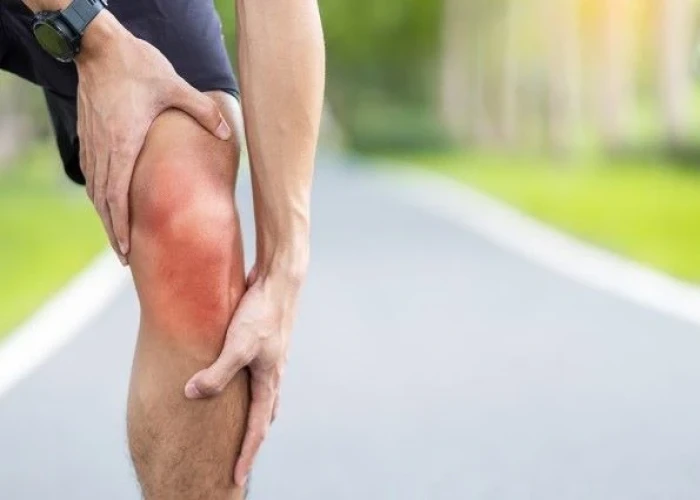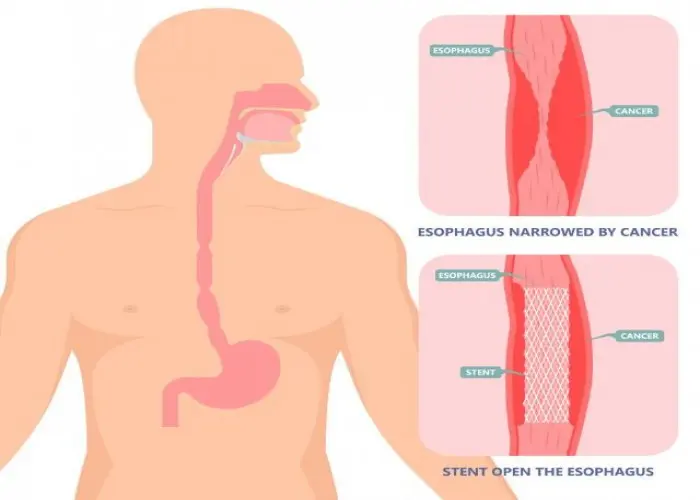 Welcome
Welcome
“May all be happy, may all be healed, may all be at peace and may no one ever suffer."
Erectile dysfunction

Erectile dysfunction (ED) is a condition in which a man is unable to achieve or maintain an erection that is sufficient for sexual intercourse. ED can be a temporary or long-term condition, and it can be caused by a variety of physical and psychological factors.
Physical causes of ED can include diseases such as diabetes, hypertension, and cardiovascular disease, as well as nerve damage, hormonal imbalances, and side effects of medication. Psychological causes of ED can include stress, anxiety, depression, and relationship problems.
Diagnosis of ED typically involves a physical exam, medical history, and laboratory tests to check for underlying medical conditions. Treatment of ED depends on the underlying cause and may include medication, lifestyle changes (such as weight loss, exercise, and smoking cessation), and therapy for psychological factors.
There are several medications available to treat ED, including phosphodiesterase type 5 (PDE5) inhibitors such as sildenafil (Viagra), tadalafil (Cialis), and vardenafil (Levitra). These medications work by increasing blood flow to the penis and can help many men achieve and maintain an erection.
Other treatment options for ED include penile injections, vacuum devices, and surgery to implant a penile prosthesis. Counseling or therapy may also be recommended to address psychological factors that may be contributing to ED.
Prevention of ED can involve maintaining a healthy lifestyle, including regular exercise, a healthy diet, and avoiding smoking and excessive alcohol consumption. Regular medical checkups and treatment of underlying medical conditions can also help prevent ED.
Research Papers
Disease Signs and Symptoms
- Reduced sexual desire
- Trouble getting an erection
- Erectile dysfunction
Disease Causes
Erectile dysfunction
Male sexual arousal is a complex process that involves the brain, hormones, emotions, nerves, muscles and blood vessels. Erectile dysfunction can result from a problem with any of these. Likewise, stress and mental health concerns can cause or worsen erectile dysfunction.
Sometimes a combination of physical and psychological issues causes erectile dysfunction. For instance, a minor physical condition that slows your sexual response might cause anxiety about maintaining an erection. The resulting anxiety can lead to or worsen erectile dysfunction.
Physical causes of erectile dysfunction
In many cases, erectile dysfunction is caused by something physical. Common causes include:
- Heart disease
- Clogged blood vessels (atherosclerosis)
- High cholesterol
- High blood pressure
- Diabetes
- Obesity
- Metabolic syndrome — a condition involving increased blood pressure, high insulin levels, body fat around the waist and high cholesterol
- Parkinson's disease
- Multiple sclerosis
- Certain prescription medications
- Tobacco use
- Peyronie's disease — development of scar tissue inside the penis
- Alcoholism and other forms of substance abuse
- Sleep disorders
- Treatments for prostate cancer or enlarged prostate
- Surgeries or injuries that affect the pelvic area or spinal cord
- Low testosterone
Psychological causes of erectile dysfunction
The brain plays a key role in triggering the series of physical events that cause an erection, starting with feelings of sexual excitement. A number of things can interfere with sexual feelings and cause or worsen erectile dysfunction. These include:
- Depression, anxiety or other mental health conditions
- Stress
- Relationship problems due to stress, poor communication or other concerns
Disease Prevents
Erectile dysfunction
The best way to prevent erectile dysfunction is to make healthy lifestyle choices and to manage any existing health conditions. For example:
- Work with your doctor to manage diabetes, heart disease or other chronic health conditions.
- See your doctor for regular checkups and medical screening tests.
- Stop smoking, limit or avoid alcohol, and don't use illegal drugs.
- Exercise regularly.
- Take steps to reduce stress.
- Get help for anxiety, depression or other mental health concerns.
Disease Treatments
The first thing your doctor will do is to make sure you're getting the right treatment for any health conditions that could be causing or worsening your erectile dysfunction.
Depending on the cause and severity of your erectile dysfunction and any underlying health conditions, you might have various treatment options. Your doctor can explain the risks and benefits of each treatment and will consider your preferences. Your partner's preferences also might play a role in your treatment choices.
Oral medications
Oral medications are a successful erectile dysfunction treatment for many men. They include:
- Sildenafil (Viagra)
- Tadalafil (Adcirca, Cialis)
- Vardenafil (Levitra, Staxyn)
- Avanafil (Stendra)
All four medications enhance the effects of nitric oxide — a natural chemical your body produces that relaxes muscles in the penis. This increases blood flow and allows you to get an erection in response to sexual stimulation.
Taking one of these tablets will not automatically produce an erection. Sexual stimulation is needed first to cause the release of nitric oxide from your penile nerves. These medications amplify that signal, allowing normal penile function in some people. Oral erectile dysfunction medications are not aphrodisiacs, will not cause excitement and are not needed in people who get normal erections.
The medications vary in dosage, how long they work and side effects. Possible side effects include flushing, nasal congestion, headache, visual changes, backache and stomach upset.
Your doctor will consider your particular situation to determine which medication might work best. These medications might not treat your erectile dysfunction immediately. You might need to work with your doctor to find the right medication and dosage for you.
Before taking any medication for erectile dysfunction, including over-the-counter supplements and herbal remedies, get your doctor's OK. Medications for erectile dysfunction do not work in everyone and might be less effective in certain conditions, such as after prostate surgery or if you have diabetes. Some medications might also be dangerous if you:
- Take nitrate drugs — commonly prescribed for chest pain (angina) — such as nitroglycerin (Nitro-Dur, Nitrostat, others), isosorbide mononitrate (Monoket) and isosorbide dinitrate (Dilatrate-SR, Isordil, Bidil)
- Have heart disease or heart failure
- Have very low blood pressure (hypotension)
Other medications
Other medications for erectile dysfunction include:
- Alprostadil self-injection. With this method, you use a fine needle to inject alprostadil (Caverject, Edex) into the base or side of your penis. In some cases, medications generally used for other conditions are used for penile injections on their own or in combination. Examples include alprostadil and phentolamine. Often these combination medications are known as bimix (if two medications are included) or trimix (if three are included).
- Each injection is dosed to create an erection lasting no longer than an hour. Because the needle used is very fine, pain from the injection site is usually minor.
- Side effects can include mild bleeding from the injection, prolonged erection (priapism) and, rarely, formation of fibrous tissue at the injection site.
- Alprostadil urethral suppository. Alprostadil (Muse) intraurethral therapy involves placing a tiny alprostadil suppository inside your penis in the penile urethra. You use a special applicator to insert the suppository into your penile urethra.
- The erection usually starts within 10 minutes and, when effective, lasts between 30 and 60 minutes. Side effects can include a burning feeling in the penis, minor bleeding in the urethra and formation of fibrous tissue inside your penis.
- Testosterone replacement. Some people have erectile dysfunction that might be complicated by low levels of the hormone testosterone. In this case, testosterone replacement therapy might be recommended as the first step or given in combination with other therapies.
Penis pumps, surgery and implants
If medications aren't effective or appropriate in your case, your doctor might recommend a different treatment. Other treatments include:
- Penis pumps. A penis pump (vacuum erection device) is a hollow tube with a hand-powered or battery-powered pump. The tube is placed over your penis, and then the pump is used to suck out the air inside the tube. This creates a vacuum that pulls blood into your penis.
- Once you get an erection, you slip a tension ring around the base of your penis to hold in the blood and keep it firm. You then remove the vacuum device.
- The erection typically lasts long enough for a couple to have sex. You remove the tension ring after intercourse. Bruising of the penis is a possible side effect, and ejaculation will be restricted by the band. Your penis might feel cold to the touch.
- If a penis pump is a good treatment choice for you, your doctor might recommend or prescribe a specific model. That way, you can be sure it suits your needs and that it's made by a reputable manufacturer.
- Penile implants. This treatment involves surgically placing devices into both sides of the penis. These implants consist of either inflatable or malleable (bendable) rods. Inflatable devices allow you to control when and how long you have an erection. The malleable rods keep your penis firm but bendable.
- Penile implants are usually not recommended until other methods have been tried first. Implants have a high degree of satisfaction among those who have tried and failed more-conservative therapies. As with any surgery, there's a risk of complications, such as infection. Penile implant surgery is not recommended if you currently have a urinary tract infection.
Exercise
Recent studies have found that exercise, especially moderate to vigorous aerobic activity, can improve erectile dysfunction.
Even less strenuous, regular exercise might reduce the risk of erectile dysfunction. Increasing your level of activity might also further reduce your risk.
Discuss an exercise plan with your doctor.
Psychological counseling
If your erectile dysfunction is caused by stress, anxiety or depression — or the condition is creating stress and relationship tension — your doctor might suggest that you, or you and your partner, visit a psychologist or counselor.
Disease Diagnoses
Disease Allopathic Generics
Disease Ayurvedic Generics
Disease Homeopathic Generics
Disease yoga
Erectile dysfunction and Learn More about Diseases

Patellar tendinitis

Corns and calluses

Premature ejaculation

Common cold

Spinal cord tumor

Epiglottitis

Hirsutism

Sleepwalking
erectile dysfunction, ইরেক্টাইল ডিসফাংশানশন
To be happy, beautiful, healthy, wealthy, hale and long-lived stay with DM3S.
